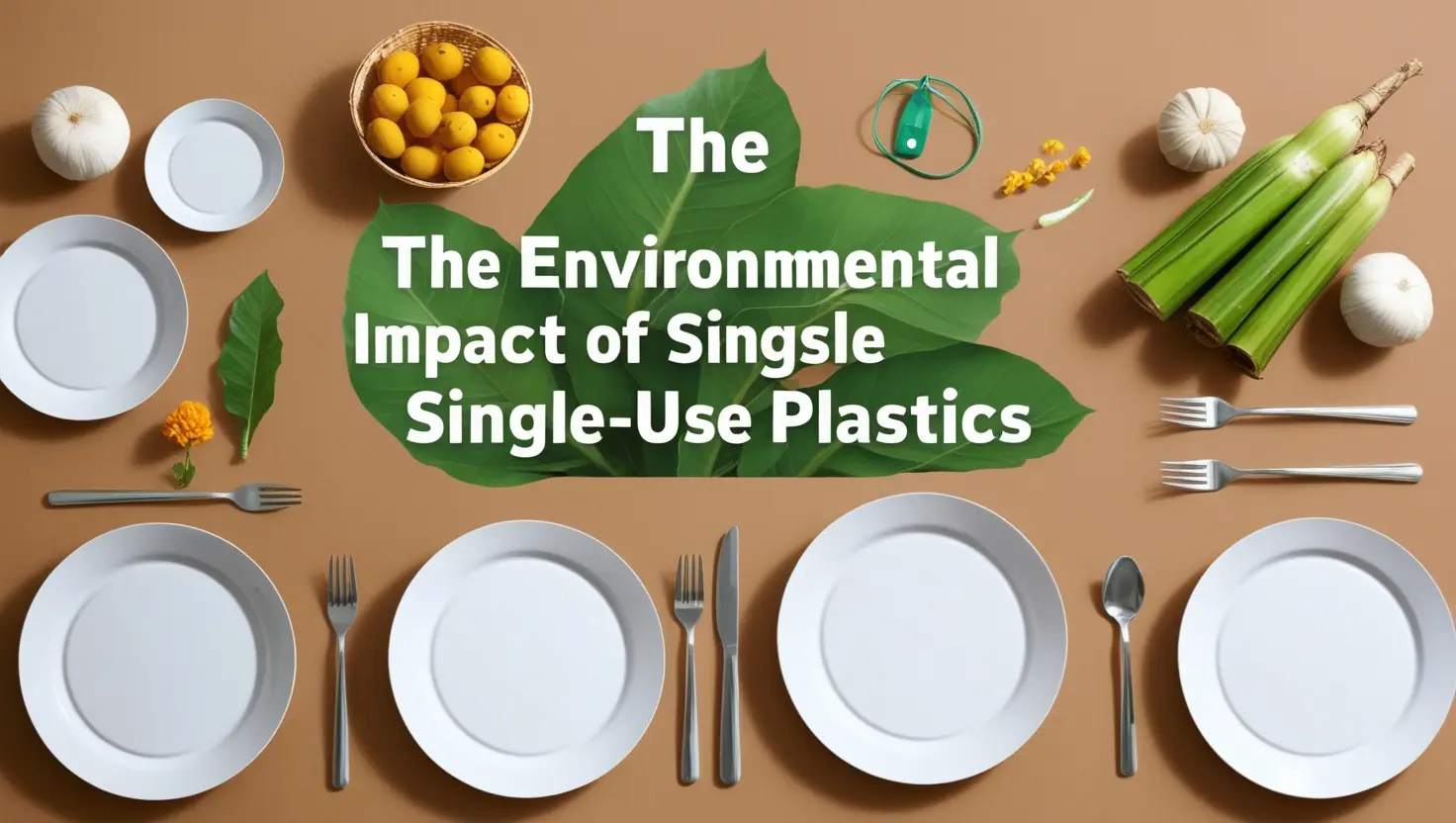In a world increasingly aware of environmental challenges, single-use plastics have become a significant concern. These disposable items, such as plastic cutlery, straws, and packaging, contribute to pollution, clogging oceans, landfills, and ecosystems. The convenience they offer comes at a high cost to the planet, making it essential to explore sustainable alternatives like sugarcane bagasse products.
The Environmental Cost of Single-Use Plastics
Single-use plastics are designed for convenience, but they leave a long-lasting impact on the environment. The production of these plastics involves significant energy and resource consumption, and their disposal leads to pollution that can persist for hundreds of years. The main environmental impacts include:
- Pollution of Oceans and Waterways: Plastics are a major pollutant in the world's oceans. Over 8 million tons of plastic enter the ocean annually, harming marine life and disrupting ecosystems.
- Landfill Overload: Most single-use plastics end up in landfills, where they can take centuries to decompose, releasing toxic chemicals into the soil and groundwater.
- Harm to Wildlife: Animals often mistake plastic waste for food, leading to ingestion, entanglement, and death. This has a cascading effect on the entire food chain.
- Climate Change Contribution: The production and disposal of plastics contribute to greenhouse gas emissions, exacerbating climate change.

The Need for Sustainable Alternatives
As the detrimental effects of single-use plastics become more apparent, the demand for sustainable alternatives has surged. One promising solution is the use of biodegradable products made from renewable resources like sugarcane bagasse.
What is Sugarcane Bagasse?
Sugarcane bagasse is the fibrous byproduct left after extracting juice from sugarcane. Traditionally considered agricultural waste, bagasse has found new life as a sustainable material for manufacturing biodegradable tableware and packaging. It is an excellent alternative to plastic, offering a range of environmental benefits.
Benefits of Sugarcane Bagasse Products
- Biodegradable and Compostable: Unlike single-use plastics, sugarcane bagasse products break down naturally within a few months, leaving no harmful residues. They are compostable, returning valuable nutrients to the soil.
- Renewable Resource: Sugarcane is a renewable resource, harvested annually. Using bagasse reduces waste and promotes a circular economy, where resources are reused rather than discarded.
- Reduced Carbon Footprint: The production of sugarcane bagasse products requires less energy than plastic production, resulting in a lower carbon footprint. Additionally, the carbon dioxide absorbed by sugarcane during its growth offsets some of the emissions generated during manufacturing.
- Versatile and Durable: Sugarcane bagasse products are sturdy and versatile, making them suitable for a wide range of applications, from tableware to packaging. They can withstand high temperatures, making them ideal for hot food and beverages.
Why Choose Sugarcane Bagasse Over Plastic?
Choosing sugarcane bagasse over single-use plastics is not just a choice for convenience but a commitment to sustainability. Here’s why:
- Environmental Stewardship: By opting for bagasse products, consumers and businesses contribute to reducing plastic pollution and conserving natural resources.
- Support for a Circular Economy: Using biodegradable products supports a circular economy, where materials are recycled and reused, minimizing waste.
- Compliance with Regulations: Many regions are implementing bans on single-use plastics. Adopting bagasse products helps businesses comply with these regulations while showcasing their commitment to environmental responsibility.

Conclusion
The environmental impact of single-use plastics is undeniable, but solutions are within reach. Sugarcane bagasse products offer a sustainable alternative that reduces pollution, conserves resources, and supports a healthier planet. As more consumers and businesses embrace these eco-friendly options, we move closer to a world where convenience and sustainability go hand in hand.